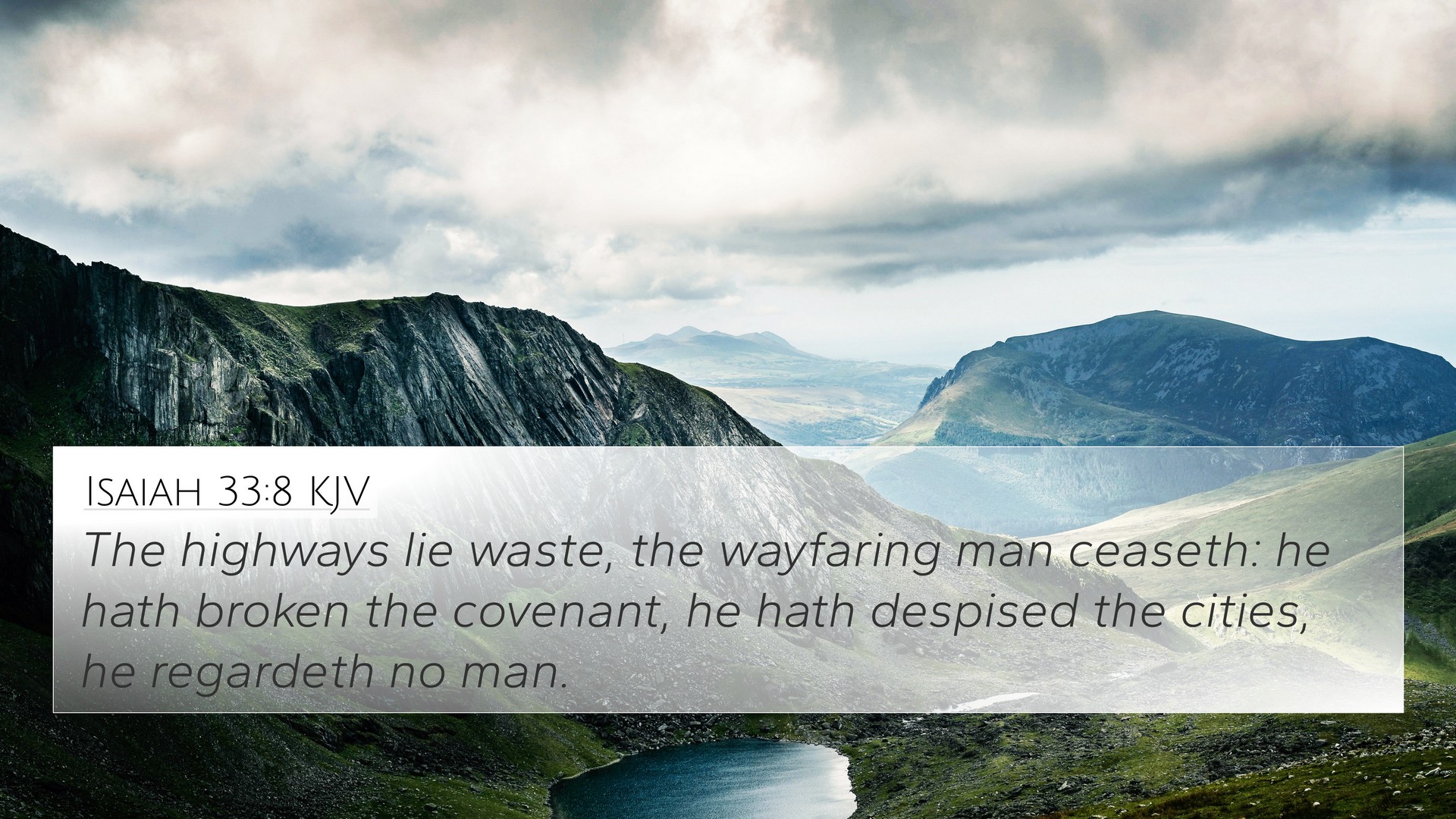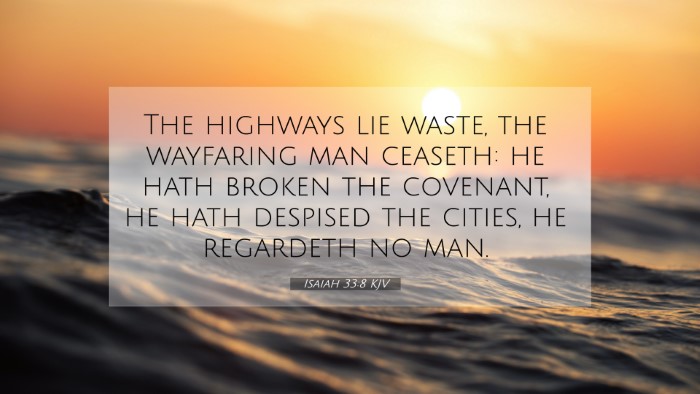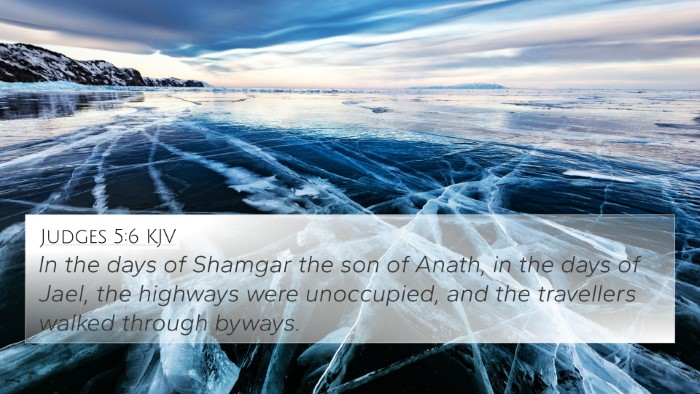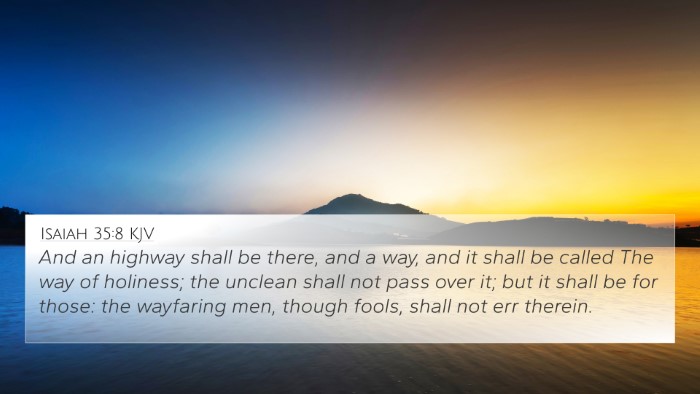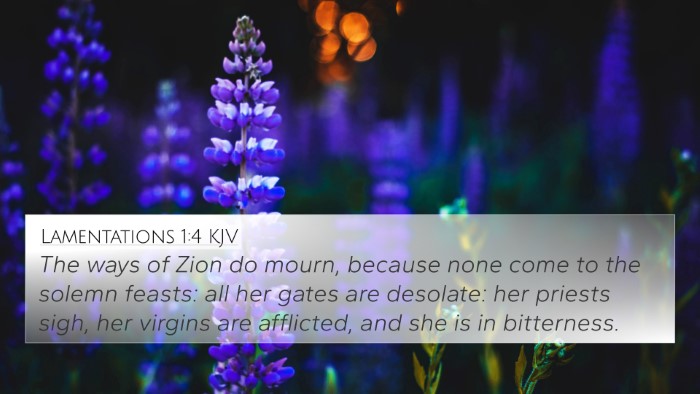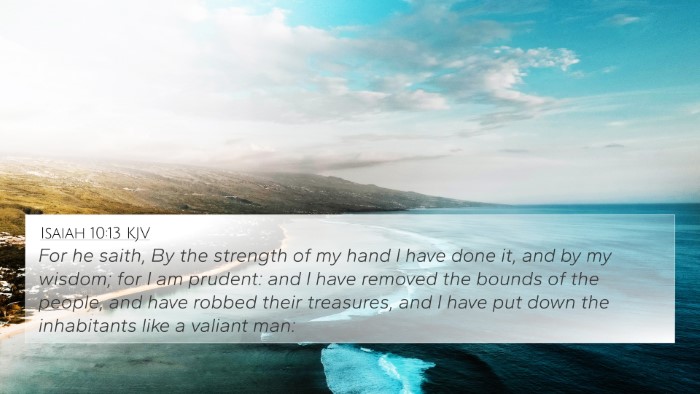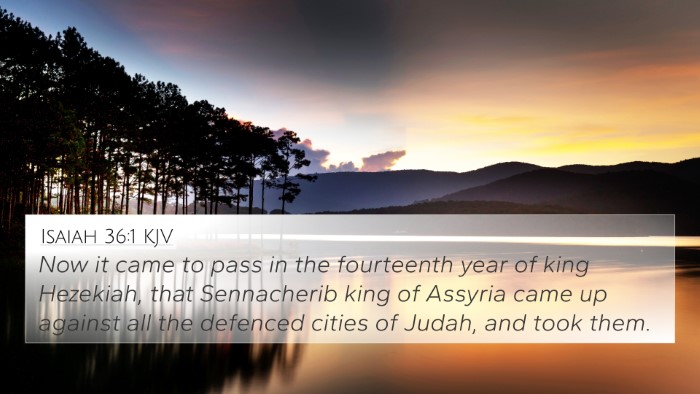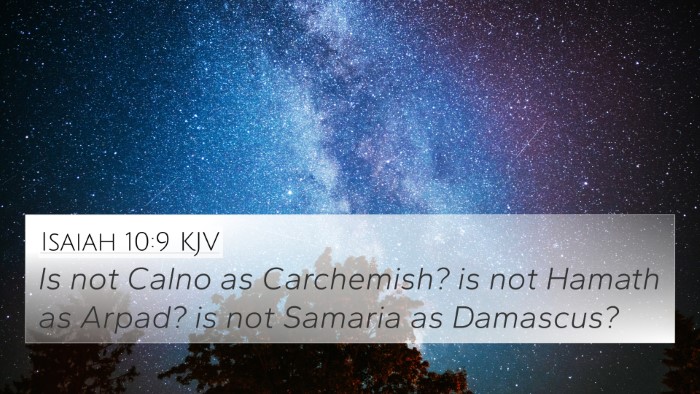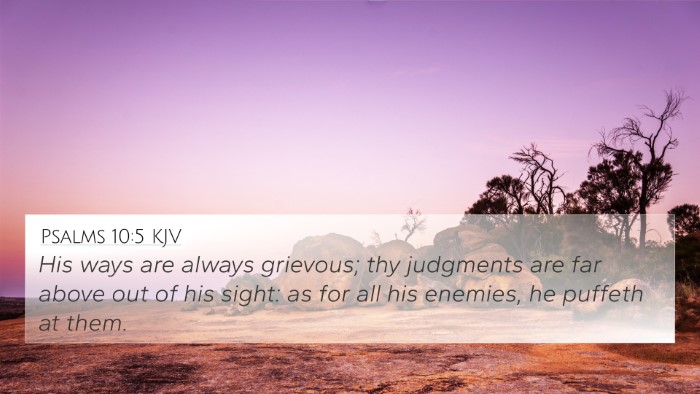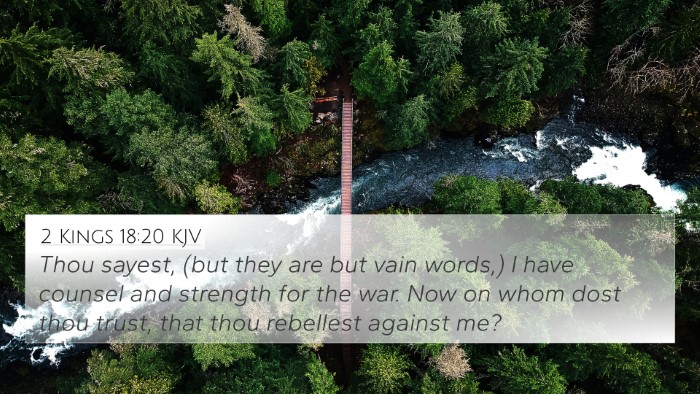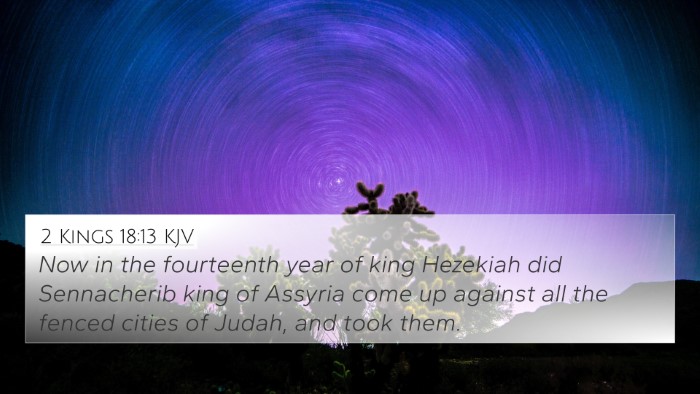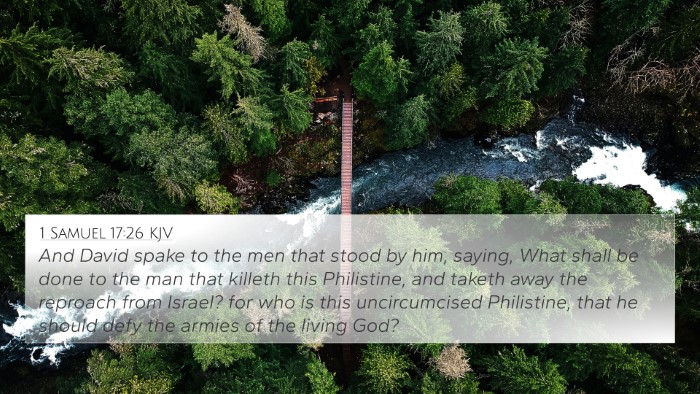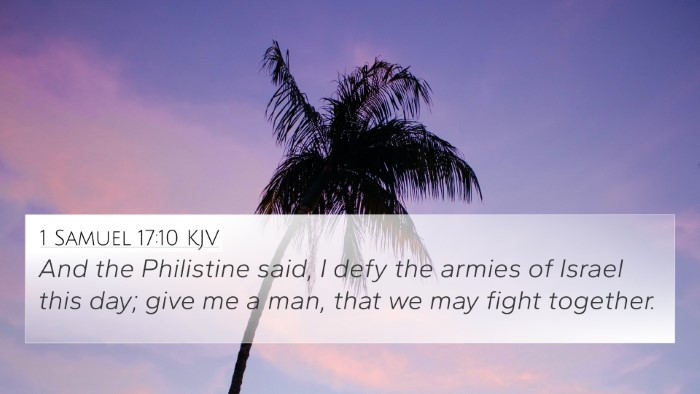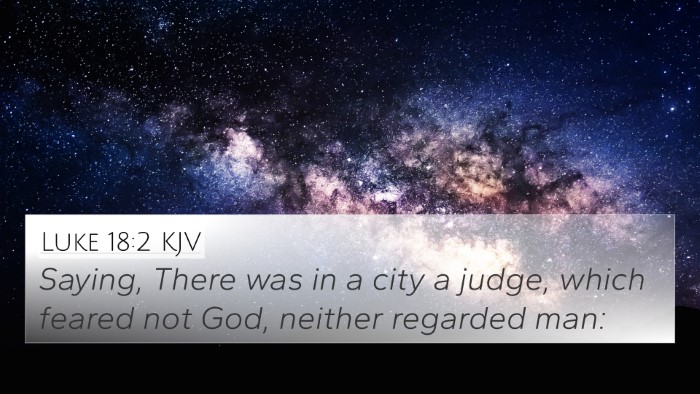Understanding Isaiah 33:8
Isaiah 33:8 states:
"The highways are desolate, the wayfaring man ceaseth: he hath broken the covenant, he hath despised the cities, he regardeth no man."
Summary and Interpretation
This verse from Isaiah captures a moment of societal breakdown and disillusionment in the face of broken covenants and abandoned authority. The imagery of desolate highways and the absence of wayfaring men symbolizes a significant decline in social and spiritual order.
Key Themes
- Desolation and Abandonment: The deserted highways reflect a broader abandonment of divine commandments and social responsibilities.
- Breach of Covenant: The mention of broken covenants highlights the consequences of disobedience towards God and its impact on community dynamics.
- Social Isolation: The reference to the wayfaring man speaks to the effects of societal decay where fellowship and sociability diminish.
Commentary Insights
According to public domain commentaries:
- Matthew Henry: He emphasizes that the desolation is a direct result of sin and forsaking God's ways. He interprets this as a warning to the people of Judah about their impending judgment if they continue in their rebellious ways.
- Albert Barnes: Barnes explains that the "ways" represent not just physical roads but the moral and spiritual pathways. He notes that the true followers of God are forced into isolation due to the prevailing sin around them.
- Adam Clarke: Clarke points out that the city’s corruption has led to its downfall. He discusses the breaking of the covenant as indicative of a broader rejection of God’s law, leading to societal chaos.
Cross-Referencing Biblical Texts
Several Bible verses resonate with themes present in Isaiah 33:8:
- Jeremiah 14:2: "Judah mourneth, and the gates thereof languish; they are black unto the ground; and the cry of Jerusalem is gone up." This parallels the desolation described in Isaiah.
- Isaiah 59:14-15: "And judgment is turned away backward, and justice standeth afar off: for truth is fallen in the street, and equity cannot enter." This verse illustrates the consequences of forsaking justice, akin to the broken highways in Isaiah.
- Hosea 4:6: "My people are destroyed for lack of knowledge: because thou hast rejected knowledge, I will also reject thee." Lack of understanding and acknowledgment of God correlates directly with societal decay.
- Lamentations 1:1: "How doth the city sit solitary, that was full of people! how is she become as a widow!" This speaks to the loneliness and desolation experienced by a corrupt society.
- Micah 7:2: "The good man is perished out of the earth: and there is none upright among men." A reflection of the moral decay impacting society.
- Romans 1:21-22: "Because that, when they knew God, they glorified him not as God, neither were thankful; but became vain in their imaginations, and their foolish heart was darkened." This underlines the consequences faced when people reject divine authority.
- Hebrews 10:26: "For if we sin willfully after that we have received the knowledge of the truth, there remaineth no more sacrifice for sins." This warns of the dire outcomes of severing one’s connection with the covenant of grace.
Applying the Insights
For those seeking to comprehend the depth of Isaiah 33:8, the following tools and references are valuable:
- Bible Concordance: Utilize a concordance to find additional verses that relate to themes in Isaiah 33:8.
- Bible Cross-Reference Guide: Employ cross-reference guides to explore how similar themes are addressed in other parts of Scripture.
- Cross-Reference Bible Study: Engage in Bible study by following the cross-references for a comprehensive understanding of interconnected themes.
- Comprehensive Bible Cross-Reference Materials: Explore thematic connections between Isaiah and other prophetic books.
In-depth Study Recommendations
For those interested in a deeper analysis, consider the following study methods:
- Identifying connections between Old and New Testament: Analyze how themes of judgment and restoration in Isaiah correspond with teachings in the New Testament.
- Comparative study of Pauline epistles: Examine how Paul addresses similar issues of moral decay and covenant fidelity.
- Cross-referenced themes in the Bible: Identify overarching themes such as the importance of covenant fidelity across both testaments.
Conclusion
Isaiah 33:8 serves as a poignant reminder of the consequences of abandoning God’s ways. Through the insights provided by key commentaries and the use of effective cross-referencing, believers can gain a more profound understanding of this scripture and its relevance in today's context. Such an understanding aids not only in individual growth but also enhances communal faith through shared reflection on the Word of God.
